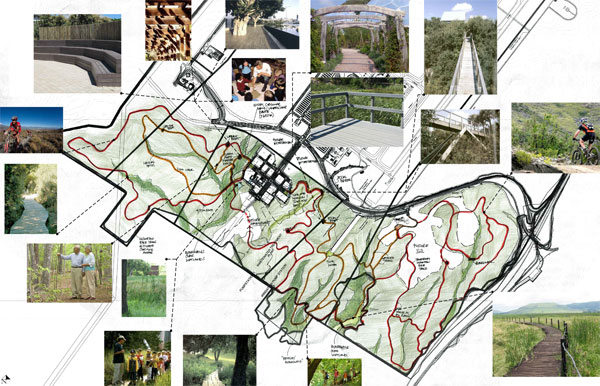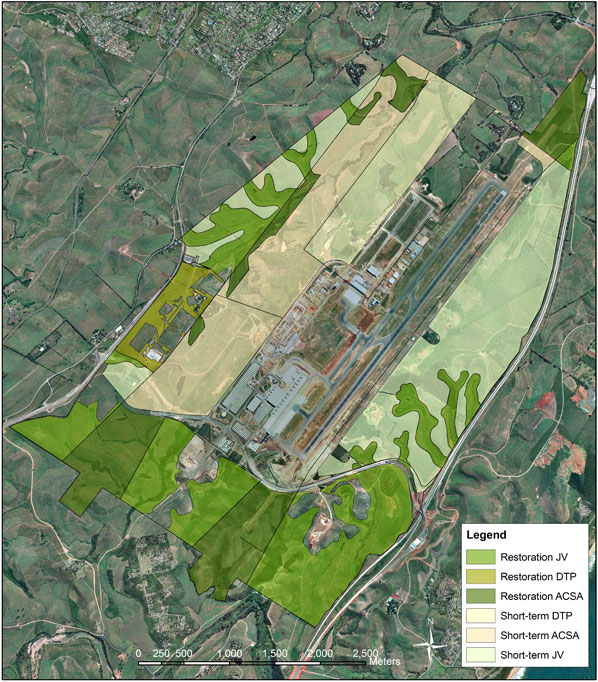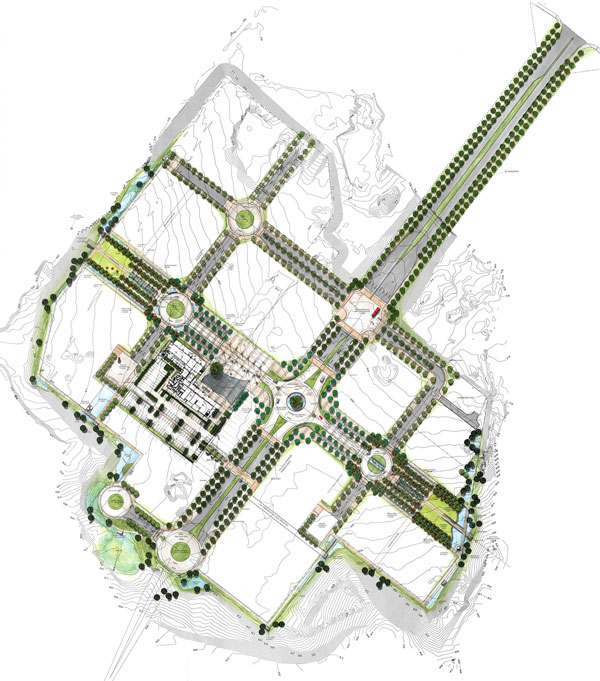Dube TradePort Corporation's commitment to the environment
DTPC is committed to promoting sustainable development by minimising and preventing environmental impacts.
In addition to ensuring compliance with applicable legal obligations, DTPC is committed to responsible natural resource management, and conducting its business with care and respect for the people and the environment.
DTPC is committed to reducing its environmental impact in the future, and some of the initiatives that are already in place include rehabilitation and restoration of biodiversity, water demand management and conservation, solar photovoltaic energy, rainwater harvesting, and Dube City - a sustainable, green precinct. The information below showcases some of DTPC's projects that are currently underway.
On-site rehabilitation and restoration
The Rehabilitation and Restoration Project comprises the following components: short term rehabilitation (alien clearing and fauna and flora species rescue) and restoration (alien clearing and planting/recreation). The project is aimed at offsetting the environmental impact of the DTP and KSIA Phase 1 build associated developments, including the TradeZone, Support Zone, access roads, etc., complying with the Environmental Impact Assessment (EIA) completed in 2007 and the Record of Decision (RoD) issued in 2008. Through this project DTPC, as a responsible developer, intends to contribute to the economic, environmental and social sustainability of the region. Overall 619 hectares across the Dube TradePort precinct will be restored and short-term rehabilitation will occur over an additional 956 hectares.
Phase 1 of the alien clearing in priority area 1 will be completed by December 2011; thereafter planting will begin. Planting will consist mainly of restoring grasslands in this portion. Although, species to be planted have been selected to optimize biodiversity and restore quality ecosystems, those selected take into account the need to reduce avifaunal roosting sites within the approach zone reducing the risk of bird strikes. Alien clearing on the remainder of the site will start in November 2011 and planting of these areas in January 2012. Planting will take place over a 12-month period and maintenance will follow in perpetuity, during which time wetland rehabilitation will occur. Biodiversity will be supplemented by including rare and endangered species, including those grown in the AgriZone nursery. An estimated additional 60 permanent jobs will be created within 3 years of project initiation.
An important outcome of this project is to ensure the restored areas are transformed into usable spaces promoting further job creation, rather than just sterilized open spaces. Access to these areas will be in the form of purposed pathways, walkways and bicycle routes; and educational facilities will be created for the public to enjoy.

Additional restoration and alien clearing is also taking place in the AgriZone, and its nursery staff members have cleared approximately 24 hectares. Approximately 15 hectares of indigenous vegetation has also been planted, including riparian and riverine forest.

Commitment to sustainable development
DTPC is committed to being a responsible developer, and this is illustrated in the planning of Dube City. Dube City has been designed to be one of Africa's first green precincts. Sustainability features are included in the design to improve the environmental performance of the precinct. These features include the following:
· Correct orientation of buildings to minimize energy use
· Accommodation of public transportation, cycle lanes, and encouraging alternative forms of transport
· Maximisation of public, pedestrian orientated space
· Encouraging the use of renewable energies, rainwater harvesting and grey water recycling
· Use of indigenous landscaping
· Encouraging permeable paving, and environmentally friendly materials in construction
· All buildings are required to have green roofs
· Providing recycling areas
· Encouraging landscaped elevations
· Encouraging green star ratings for buildings (minimum 4-star rating)

Managing scarce resources
· Water
In managing DTPC's natural resource base and our potential ecological impact on water resources, DTPC has put together a number of mitigatory measures including rainwater harvesting, balancing tanks for treated sewage water, and extensive storm water structures for maintaining the quality of stormwater leaving the site. DTPC's Planning and Environment department has commissioned an independent Environmental Assessment Practitioner and SANAS accredited laboratory to monitor and report on surface water quality from the Dube TradePort site. DTPC is also undertaking a study to better understand water demand and conservation management on site, which will inform future interventions.
· Energy
DTPC is dedicated to reducing the use of non-renewable sources of energy and is implementing a number of systems to reduce energy use in the AgriZone. Methods to reduce energy use include using natural ventilation in all the greenhouses to reduce the energy required to maintain a stable climate. In addition, by installing photovoltaic systems on two of the packhouses, DTPC will be able to supplement the majority of the energy requirements for these facilities, the largest energy consumers within the AgriZone. 250 kWp will be supplied to the smaller packhouse and 430 kWp to the larger packhouse. This supply will allow for energy to be exported from the facilities during periods of low activity.
· Waste
An important aspect of being a sustainable developer is the reduction in the amount of waste being produced and disposed of at landfill sites by DTP facilities (Dube AgriZone, Dube Cargo Terminal, 29° South and Dube TradeHouse). Waste Management Plans have been prepared for and are being implemented within DTP’s facilities, and incorporate core recycling and reuse values aimed at waste reduction.
Gallery